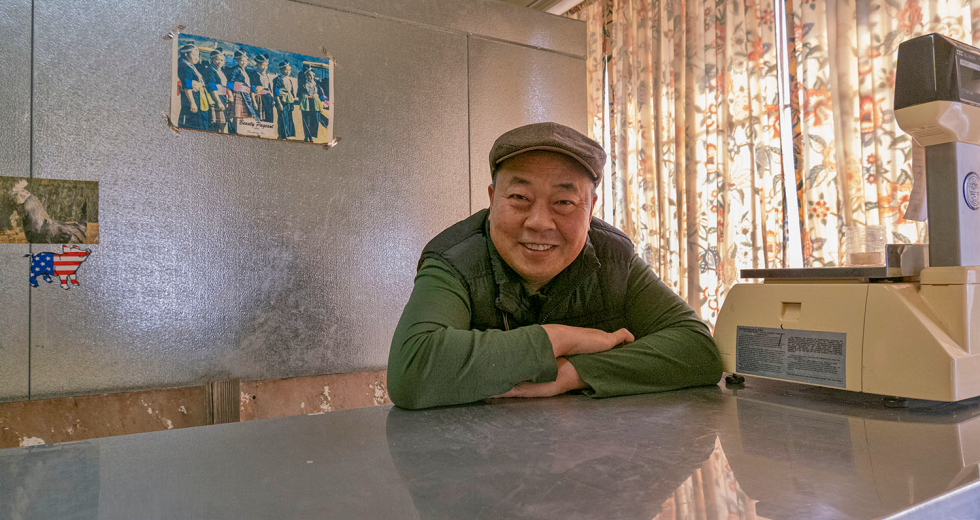On Lunar New Year, hard-boiled eggs are dyed red and carefully placed in traditional macramé necklaces. The eggs symbolize the blessing of one’s good fortune for the coming new year. All around Sacramento, ceremonial feasts bring people together, where bright red blessings are distributed and hang near the hearts of the participants.
The Iu Mien (yoo-myen) have celebrated about 50 such new years in America. They are an indigenous tribe from Southern China that numbers about 30,000 in the United States, with about 15,000 living in Sacramento County alone. Unlike the more familiar Hmong (muhng) tribe, which has 293,000 members in the country, the Iu Mien are not counted in the 2020 US Census, so statistics remain estimated.
Since the 17th century, the Iu Mien (sometimes referred to as the Mien) have been nomadic, traveling from China to Southeast Asia and living off the land that would bear them. During the Vietnam War, the local Iu Mien tribe was forced into conflict and aided U.S. forces. They made a mass exodus to refugee centers in Thailand, where some were granted the option to resettle in the U.S. The camps were heavily impacted and some asylum-seeking families spent many years there before finding new homes abroad.
This conflict in Southeast Asia catalyzed the identity of a generation of indigenous people as Iu Mien Americans, where they are also generally categorized as Southeast Asian American. Many of them resettled in Northern California, where they adapted their skills as terrace farmers and integrated into the agricultural industry by finding immediate work in strawberry fields. Iu Mien American families now operate strawberry farms across Northern California such as Watmaugh Strawberries, Yoon Chao’s Strawberry Farm and Saeturn Farm.
Cascading from China, the Iu Mien American culture has been heavily influenced by Laos and Thailand. One of the ways they hold onto their indigenous Chinese roots is by celebrating the Lunar New Year, which took place Jan. 22 and will continue to spur festivals and events in the coming weeks. Comstock’s checked in with four local Iu Mien entrepreneurs and leaders to see how they’re marking the holiday.
Leading a changing community
Ashlee Lee, board president, Iu Mien Community Services
Ashlee Lee addresses a crowd of Iu Mien Americans and Lao
Americans dressed in traditional attire at the opening reception
of the California Museum exhibit “Between 2 Worlds” Sept. 16,
2022.
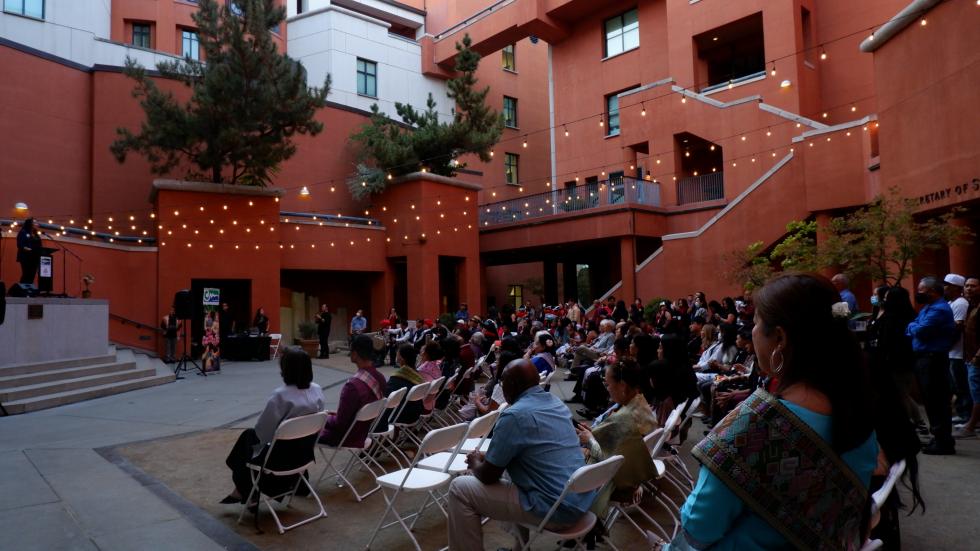
Founded in 1994, Iu Mien Community Services was originally a nonprofit organization focused on providing aid to Iu Mien immigrant families. It is now paying closer attention to the needs of its newer, American-born generation. Ashlee Lee, board president since 2022, is driven by her parents’ stories of sacrifice. “When you listen to their storytelling you hear the pain in their voices and you hear the amount of suffering that they endured to get us here,” she says. “I can’t think of a big enough excuse to say that there is not enough that we can do to make things better.”
Since traditional Iu Mien culture is patriarchal, Lee found herself occupying a role that had not always been accessible to Iu Mien women. Inspired by the progressive shifts in the community, she pays close attention to the needs of the growing numbers of the multiethnic Iu Mien youth.
“Our community has reached a pivotal point in how we’ve assimilated in this country. It’s more than just adapting. It’s also about paying attention to the needs of the newer generation and at the same time, not steering too far from the critical services to our elders,” she says. “We are challenging the traditional ways of thinking about leadership and how we connect with the community.”
The organization is made up of eight staff members and eight board members and provides services to 15,000 Iu Mien Americans in Sacramento County — the densest Iu Mien population in the US. (Disclosure: The author is a member of the board.) “It is a small, young and driven organization,” Lee says. Funded by the 2004 Mental Health Services Act, the organization has created various senior support and youth outreach programs that are critical to cultural retention.
The Iu Mien community struggles to maintain cultural interest and native language literacy among its youth. These programs provide culturally competent spaces for the tribe to embrace their ethnic identity and facilitate support from community members.“Even if it takes one person, two people or a few of us to make small changes, we are representing those who do not know how to use their voice and it is important to do it for them,” Lee says.
There is a growing trend of Iu Mien American women occupying leadership roles, and it is reflected in the organization itself, where the majority of staff and board members are women.“If we look at the agency’s board over the past 20 years, it was predominantly made up of first-generation male community leaders, and it worked because that’s how our community had always been,” Lee says. “Our gender roles have kind of shifted and changed to be more inclusive of women leaders. We can only do that successfully if we have the whole community backing the advances.”
Lee believes that breaking down these gender barriers will facilitate fresh perspectives, and she hopes to implement new ideas of her own to help the community engage more thoughtfully with their cultural identity. As the board president, she aims to implement strategic planning for future generations to be proud of their heritage and cast a wider net in fostering a sense of community.
“We have a generation that is multiethnic and are passionate and interested in learning about the culture,” she says. “We’ll have to be more attentive to strategic programing, partnerships, collaborations and advance out of our normal ways of operating as a community resource.”
With her team, she hopes to inspire the youth to be more outspoken about their ethnic identity and encourage them to become involved in their community. “Imagine if we could all do things together with the same grit, motivation and heart. We could do so much,” she says.
Leveraging the Iu Mien experience to help others
Koy Saephan, founder and CEO, Excel Interpreting
The Center for Lao Studies held an event titled Between 2 Worlds:
Untold Stories of Refugees from Laos Oct. 8, 2022. From left to
right, the speakers are from Kathy Chao Rothberg, Pastor Seng
Luang Chao, Koy Saephan and moderator Siamphone Louankang.
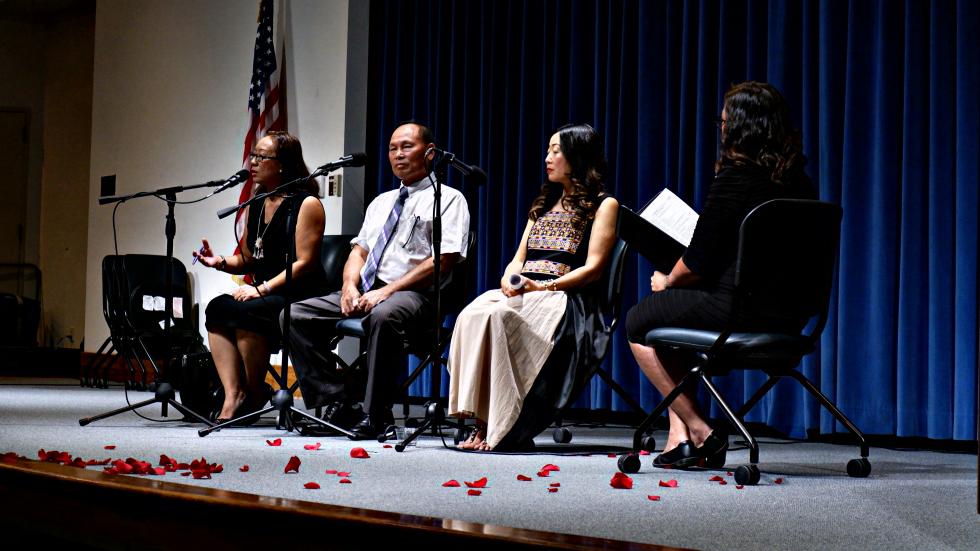
From a young age, Koy Saephan interpreted the Iu Mien language to English for her parents, and in 2010, she founded Excel Interpreting, a translating service based in California. “Being an ad hoc child interpreter gave me firsthand experience of the struggles of my parents and many who could not speak English well,” she says. “The vast linguistic, cultural and religious differences created profound challenges in the ability of the Iu Mien to adapt to life in a new society.”
Early in her professional career, Saephan was on track for law school, becoming the first ever Iu Mien courtroom interpreter and provided her services across California. Reflecting back, she admits, “Court interpreting was supposed to be a stepping stone to law school. However, I later realized that bridging the communication gap was important and meaningful in many ways. I realized that I could make a difference and touch many lives through language access.”
Excel Interpreting staffs 17 employees and offers interpretation services, not only in Iu Mien, but also in 264 other languages, with a focus in medical, social service and education settings.
“Over the years I have come to realize that these difficulties are not unique to Mien people, but these issues speak to the adjustment process of all new refugees and immigrants navigating life in a new country,” Saephan admits. “Interpreters can act as a cultural intermediary and provide context and enhance understanding in the communication process.”
Since first arriving in the U.S. in the 1970s, the Iu Mien were faced with the task of cultural assimilation, and there were few interpretation services to assist these struggling refugees. Inspired by this experience, Saephan provides space for cultural empathy and promotes native language retention among the Iu Mien and other disadvantaged communities.
“The Iu Mien community in Sacramento is relatively small compared to other ethnic groups,” she says, adding that the company has worked with over 3,000 Iu Mien community members and completed over 200,000 interpretation and translation assignments in 65 languages. “Excel Interpreting and Translating was founded on the belief that bridging the language gap is critical in ensuring equal access to resources and building better-served communities for everyone, regardless of language proficiency.”
Giving the Southeast Asian community a voice
Kathy Chao Rothberg, CEO of Lao Family Community Development, former mayor of San Pablo
Following her father’s legacy, Kathy Chao Rothberg served the Iu Mien American community for most of her life. As a recent Iu Mien immigrant, her father co-founded Lao Family Community Development in 1980 and for the past 17 years, Chao Rothberg served as its CEO. The organization provides services to the Iu Mien and other Southeast Asian communities that face similar experiences as Vietnam War refugees resettling in the United States.
California is the home of about 910,000 Southeast Asian Americans where they live with a lower-than-average per capita income. She says, “We didn’t come here for economic reasons. We came here because we were the product of a political war and our allegiance to the US military. As a consequence, we were catapulted into one of the most expensive communities in the United States, the Bay Area, and we are overshadowed by the myth of the model minority.”
With locations in Oakland, San Pablo and Sacramento, Lao Family Community Development staffs about 150 employees and serves about 31,000 people a year in 35 different languages. “We’ve touched the lives of almost every Mien family that came to Northern California.” These facilities assist community members with education, income and family support, health services, employer services, employment services and housing services. The organization gets deeply involved with the lives of the community members by acting as a guardian for those in need.
Chao Rothberg notes that the organization has always helped victims of crime navigate the justice system by making sure that legal processes are translated and understood. She adds, “We are also able to serve people who are coming out of jail homeless, people who are in encampments and victims of domestic violence and we graduate them with the skills, the credit and jobs to find permanent housing in the marketplace.”
With a background in real estate development, Chao Rothberg hopes to evolve the organization by focusing extensively on an affordable housing program.“Homelessness and affordable housing is affecting everyone,” she says. “In recent years, we’ve been experiencing an evolution to become a real estate developer for affordable housing.”
In the last 10 years, the organization accumulated over 334 units of affordable housing to address homelessness and in the last six years, have graduated about 4000 people into permanent housing.“Every single person who sticks with our program graduates into permanent housing,” Chao Rothberg says. “We’re taking our experiences as refugees, living in the mountains, to also help those who are homeless and are coming out of jails. We take our experiences of being displaced and having to build a new community.”
Aside from her nonprofit work, Chao Rothberg was also the first Iu Mien mayor in the United States. “When I first ran for office, there were 48 registered Southeast Asian voters in San Pablo, so I worked hard to register voters,” she says. However, Chao Rothberg believes that she serves across all race lines, noting that she was proud to garner support not only from the Iu Mien and Southeast Asians, but from all ethnicities.
She reflects, “Many of the Mien people came to the East Bay and I saw that Asians and Southeast Asians didn’t have a voice in San Pablo and Richmond. I ran for office to make sure that they had a voice. It was to make sure that the voices of the immigrants, the voices of the refugees, the disenfranchised, those who are normally not seen or heard are represented. That’s why I ran for office.”
When asked if she will run for office again, Chao Rothberg says, “People ask me that all the time. The way I see it, I’m going to continue to do what I love, which is to be of service to our community. We’ll see what happens.”
Lao Family Community Development will be co-sponsoring the upcoming Iu Mien Festival on April 1 at Hiram Johnson High School in Sacramento.
Creating a cultural hub through food
Tawn Seng (Dungz-Jaangh Ong) Saephan, owner, Samthong Meat Market
Tawn Seng (Dungz-Jaangh Ong) Saephan behind the counter at
Samthong Meat Market Jan. 19, 2023. Behind him is a photo of a
Hmong beauty pageant held in Samthong, Laos 1969.
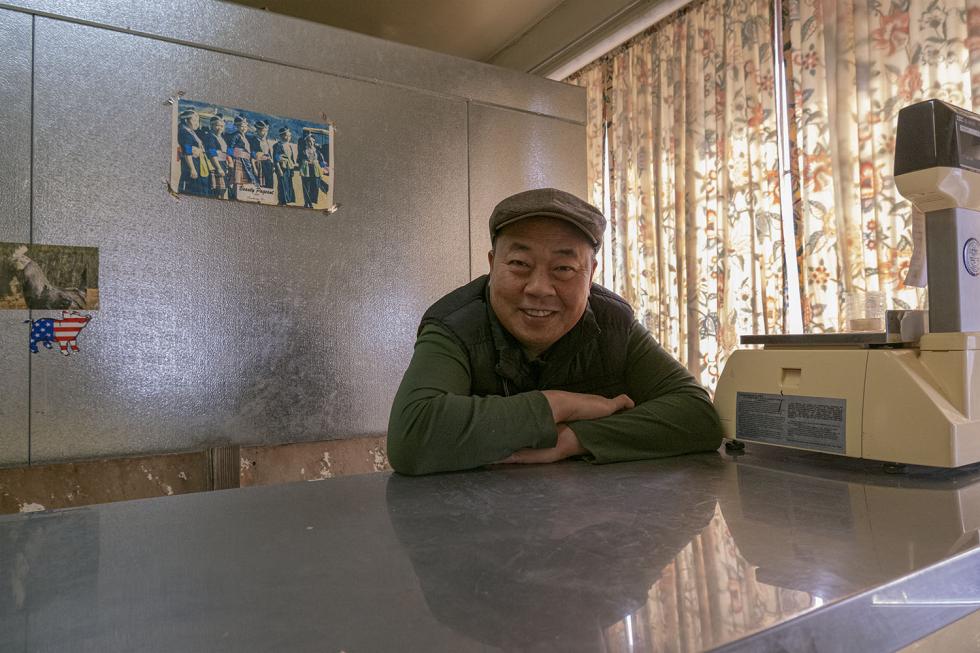
Before it fell to enemy forces in 1970, Samthong was a small town classified as a USAID refugee center that housed tribes, like the Iu Mien and Hmong, who were displaced by the Vietnam War. Xaikao Vang, a Hmong refugee, graduated from Samthong College and lived there until he was forced to relocate yet again. He found refuge in the United States and later opened Samthong Meat Market in 2004, located on the corner of Franklin Boulevard and 47th Avenue. The business soon changed ownership when Tawn Seng Saephan, a Iu Mien refugee, married Vang’s daughter, Pa Houa, and the couple both took over the business in 2005. Saephan had worked for a company for 17 years, but had always dreamed of working for himself. “This is American dream for me,” he says; “a dream come true.”
Managing the daily operation of Samthong Meat Market for the past 18 years has earned Saephan an endearing nickname among the Iu Mien community: “Dungz-Jaangh Ong,” or “Pork Sausage Grandpa.” The slogan on the shop’s business card says “We are Famous for our Hmong Pork Sausages,” and it attracts many Southeast Asian citizens seeking familiar flavors. In his humble shop, Saephan fosters a sense of community for those who visit.
While perusing through the fresh produce from local Hmong farms and the imported spices and kitchen tools for “tum,” a style of Lao cuisine that requires the use of a traditional clay mortar and wooden pestle, you will often hear Saephan switch between Iu Mien, English, Lao, Thai and Hmong to interact with his diverse clientele. Though his customers speak different languages, they are all here for the same flavors that reflect their shared cultural history. His sausage trills with the trifecta of ginger, scallion and garlic. Lemongrass and bird’s eye chiles dance backup.
Samthong’s sausage, top, served with sticky rice and jeow mak
len, a Lao tomato-based condiment.
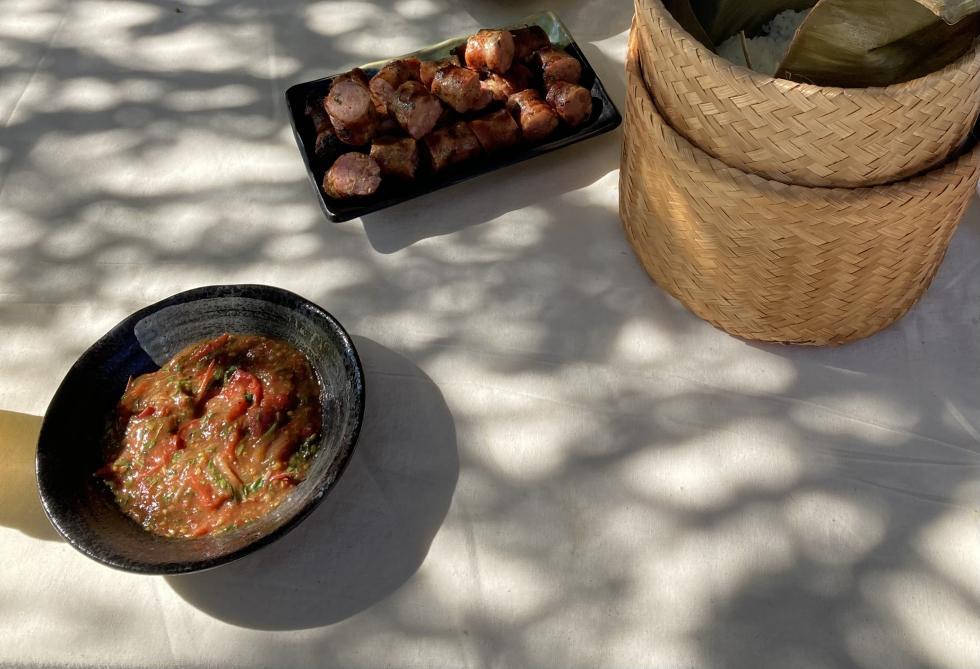
Most Southeast Asian customers, especially the Iu Mien, might identify this sausage as their own. When asked about the difference between the Iu Mien and Hmong sausage, Saephan replies, “It is the same. It depends on who is making it.” By this rule, Saephan’s sausages would be considered Iu Mien, since he is the proprietor of the recipe and a member of the Iu Mien tribe. However, he felt that maintaining a Hmong brand would honor his father-in-law, and at the same time cater to the Hmong community that is about 2.5 times larger than the Iu Mien community in Sacramento County.
“The Hmong language, I just learned from here,” Saephan says. “My wife is Hmong, but I didn’t know Hmong until I took over the store. I learned from customers.”
Saechao regularly donates his products to Iu Mien and Hmong nonprofit organizations that hold events like the upcoming Iu Mien Community Services’ New Year Celebration for Healthy Village Seniors on Feb. 4. The Samthong sausages are approved by the USDA and can be found in eight or so Asian markets around the Sacramento area. However, the best practice might be to walk into Saephan’s store and choose one of his five languages to greet him.
–
Stay up to date on business in the Capital Region: Subscribe to the Comstock’s newsletter today.
Recommended For You
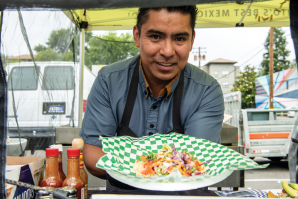
Street Food Offers a Road to Success
The Midtown Association’s Street Food Sacramento grant supports entrepreneurs creating an authentic taste of Sacramento
Midtown Association’s Street Food Sacramento grant
is helping to better represent the city’s
diversity in the business district and the thriving Midtown
Farmers Market.
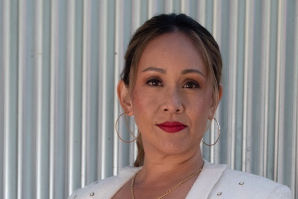
Getting to Know: Dr. Robyn Magalit Rodriguez
A celebrated Asian American studies professor leaves the ivory tower for entrepreneurship
Encountering barriers in academia has prompted Dr. Robyn Magalit
Rodriguez to launch into entrepreneurship. She is leaving her
post as a full professor at UC Davis to create her own school,
farm and learning center.
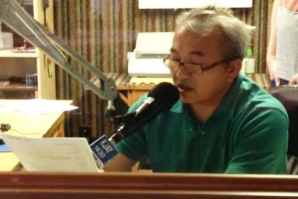
Mom and Pop Radio
The Sacramento Hmong community stays connected by broadcasting on family-owned KJAY
KJAY in West Sacramento broadcasts a mix of Hmong, Russian, religious and oldies programming, and that’s just a part of what makes the station an outlier in a world of corporate radio.

Getting to Know: William Glasser
Founder and CEO of Language World Services in Carmichael on how his translation business bridges a critical gap
It’s crucial for people who have limited English proficiency to process information accurately as they navigate complex systems, and William Glasser has focused his career on helping them do so.
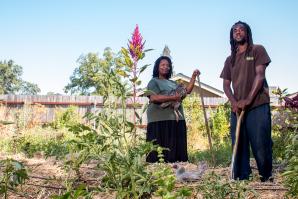
Grow Your Own Way
Does the evolution of urban agriculture reveal a schism in the community or a movement picking up steam?
Ten years into the movement, and urban farming in the Sacramento region has garnered widespread support. Agrihoods now represent the latest development in the movement — but will they strengthen or overshadow it?

Language Access Opens a World of New Opportunities
Increasing language access for clients and staff can expand your customer base and build trust with a diverse workforce
While it may be easier to think of the world as English speaking only, there are many relationships (and bottom lines) that can be improved through increased language access.



